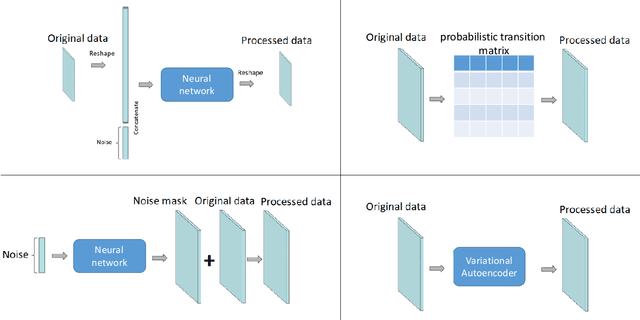Learning Generative Adversarial RePresentations (GAP) under Fairness and Censoring Constraints
Paper and Code
Sep 27, 2019



We present Generative Adversarial rePresentations (GAP) as a data-driven framework for learning censored and/or fair representations. GAP leverages recent advancements in adversarial learning to allow a data holder to learn universal representations that decouple a set of sensitive attributes from the rest of the dataset. Under GAP, finding the optimal mechanism? {decorrelating encoder/decorrelator} is formulated as a constrained minimax game between a data encoder and an adversary. We show that for appropriately chosen adversarial loss functions, GAP provides {censoring} guarantees against strong information-theoretic adversaries and enforces demographic parity. We also evaluate the performance of GAP on multi-dimensional Gaussian mixture models and real datasets, and show how a designer can certify that representations learned under an adversary with a fixed architecture perform well against more complex adversaries.
 Add to Chrome
Add to Chrome Add to Firefox
Add to Firefox Add to Edge
Add to Edge